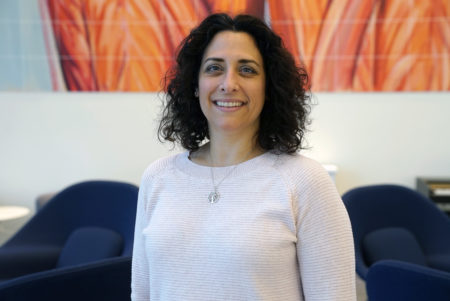 Dr. Nicole Moses, MD serves as Assistant Professor of Family Medicine at the Idaho College of Osteopathic Medicine.
Dr. Nicole Moses, MD serves as Assistant Professor of Family Medicine at the Idaho College of Osteopathic Medicine.
Dr. Moses completed undergraduate studies at the University of Illinois in Urbana-Champaign in Biochemistry as well as a Masters Degree in Education at DePaul University. Prior to entering medical school, she worked as a high school science teacher focusing on chemistry and physical science. Education has always been her passion and primary focus, and the idea of teaching in higher education and the desire to serve others prompted her to enter medical school. She completed her educational training at the University of Illinois in Chicago and her residency training in Family Medicine at Adventist Hinsdale Hospital. After residency training, she continued to teach as an attending at her residency program for a number of years prior to entering into private practice.
The relocation from Chicago to Boise was fueled by a passion for the outdoors and a sense of adventure. She is trained in medical improv, a communication tool used to teach providers effective communication skills and is thrilled to be bringing this training technique to ICOM. She is currently completing a Primary Care Psychiatry Fellowship through the University of California – Davis. When Dr. Moses is not seeing patients or teaching, she is running around with her husband and four children to various sporting events or walking her dog, Ace. She enjoys traveling, hiking, reading and improv classes in her free time.
Q: What inspired you to pursue a career in medicine?
A: I was not one of those kids that wanted to be a doctor my whole life. My path to medicine was a very indirect one, which makes this a very difficult question for me to answer! I started my career as a high school science teacher, very excited to share my interest and passion for the physical and biological sciences. I knew I wanted to be a teacher of some kind, I just didn’t know where. I was fortunate enough to land a job teaching an MCAT preparation course for Kaplan, which required me to take the MCAT. I did pretty well and, believe it or not, this started me on the path to medicine. If I had to answer this question now, after many years in the profession, I would say medicine inspires me to continually find new and innovative ways to teach patients and students. Without innovation in education, we cannot expect to improve the outcome. There is much work to be done!
Q: How did you transition into academia, and what inspired you to work at ICOM?
A: I just recently transitioned to the academic world of medicine in February of 2020, so I am very new at this. I began working with ICOM students in the clinical small groups as an adjunct faculty member. Again, my goal has always focused on education, the transition to full time faculty seemed like a natural one. I felt I finally had enough clinical experience to support the transition, and my experiences working with ICOM faculty and students was so positive and fun!
Q: What is your favorite memory from your time in medical school?
A: There are many, but my absolute favorite is anatomy lab! My anatomy lab was on the top floor of a very old building in Chicago with very little ventilation or air conditioning. The smell of formaldehyde was so strong it could take down a small animal, and there wasn’t a session that went by without someone needing to leave to vomit. My lab partner and I decided to stuff our bras with fresh dryer sheets for all of our anatomy sessions to ward off the bad smell. One can only imagine how popular we became among our peers for a number of reasons!
Q: What is the best part of your job?
A: The absolute best part of my job is working with students! I enjoy clinical small groups and working with students as clinical faculty and a club advisor (shout out to FMC). Every experience is a learning opportunity to improve my own teaching skills which is always a top priority for me. That being said, I am also so grateful to ICOM and its students for their interest and development of medical improv. Communication skills are the cornerstone of any successful physician and being in a position to teach these skills in a new and innovative way is a dream come true!
Q: What advice do you have for ICOM’s student doctors as they prepare to become physicians?
A: My advice to ICOM students as they prepare to become physicians is to be mindful of your humanity and your reason for deciding to do this in the first place. A successful career in medicine is not measured in test scores and how many pieces of scientific information you can cram in your head. Ultimately, the development of your own professional identity is crucial to the myriad of successful interactions needed to derive joy and meaning from your career.